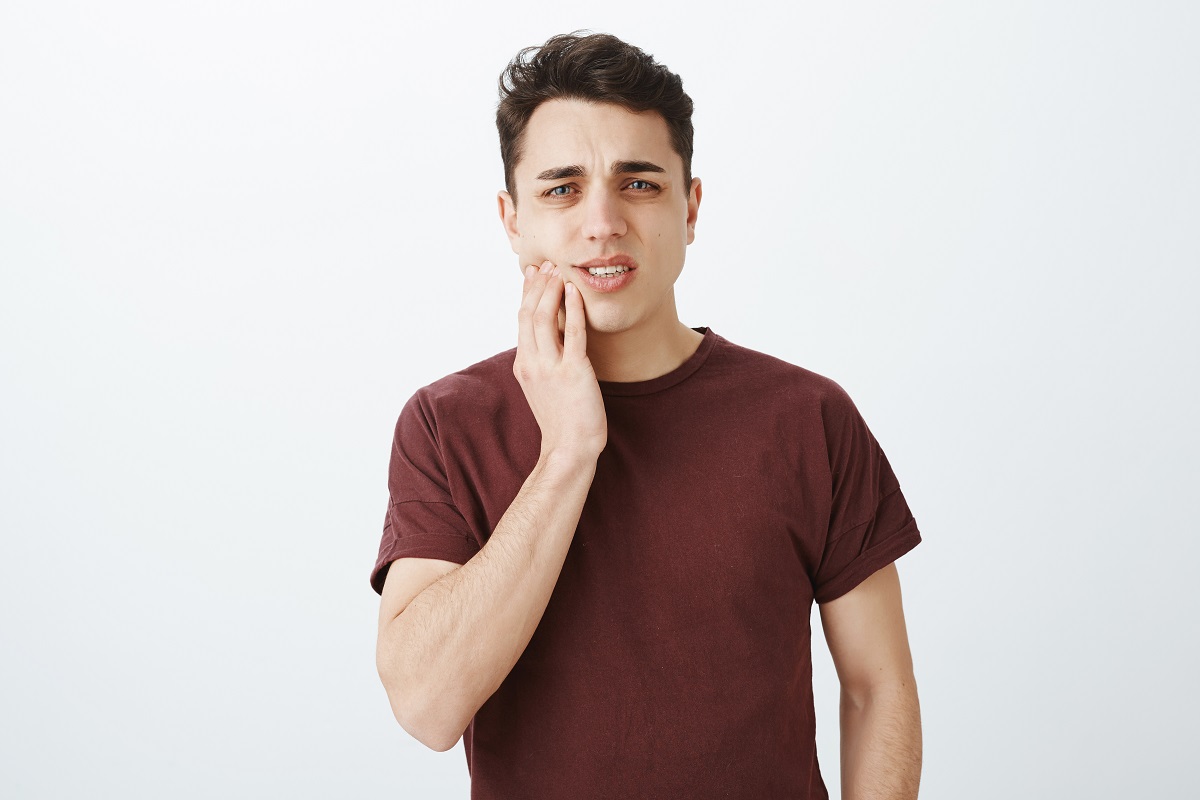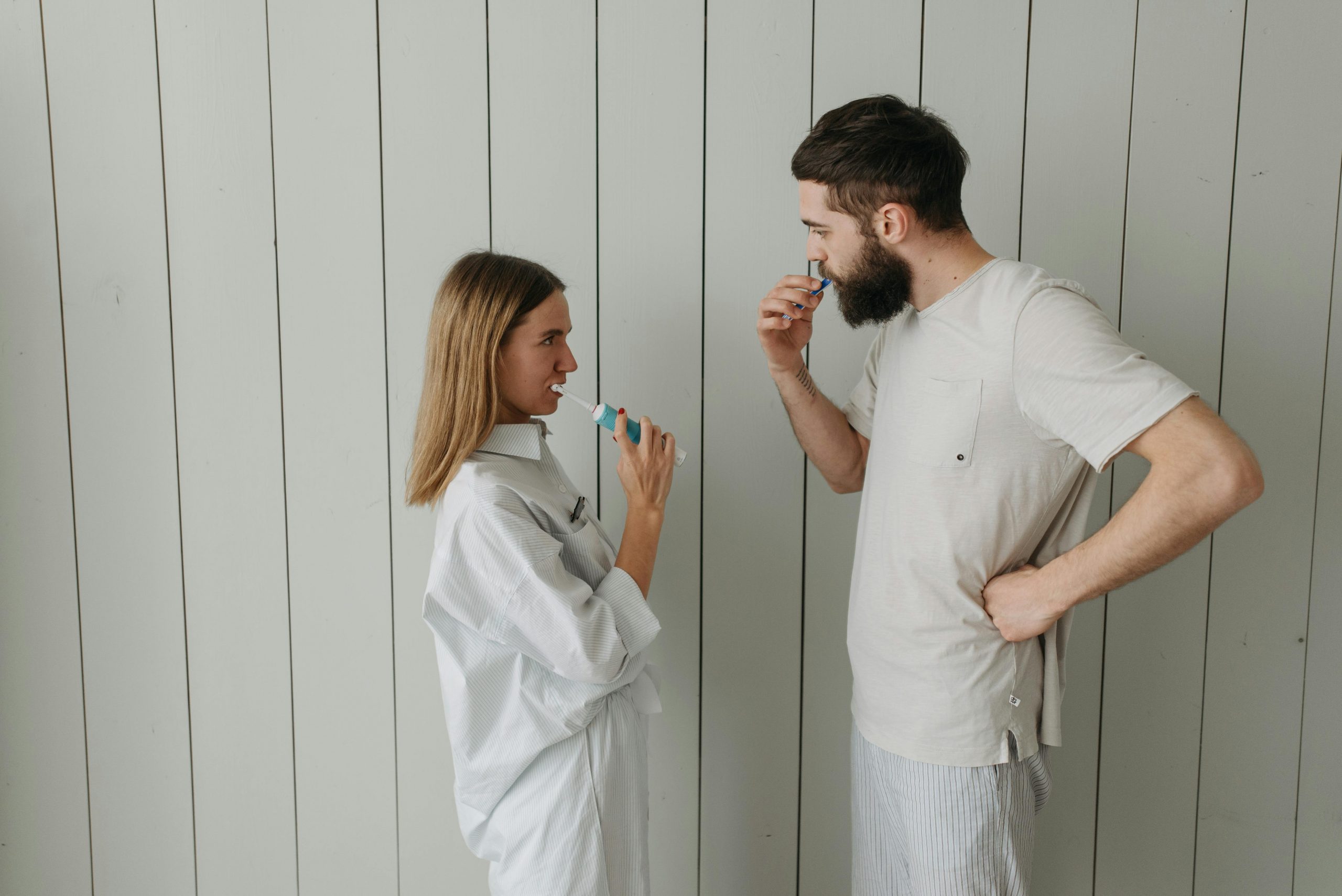
When we think of kissing, we think of romance—not tooth decay. But if you’ve ever wondered, can you get cavities from kissing?—the short answer is yes. While it may sound surprising, kissing can actually spread cavity-causing bacteria from one person to another.
In this article, we’ll explain how cavities can spread through kissing, why it happens, and—most importantly—how you can protect your teeth without giving up affection.
What Are Cavities, and What Causes Them?
Before diving into kissing-related risks, it helps to understand what cavities really are.
Cavities—also known as dental caries—are permanent damage to the enamel (the hard surface of your teeth) caused by a combination of factors, including:
- Plaque buildup
- Sugary or acidic foods and drinks
- Poor brushing or flossing habits
- Dry mouth
- Certain bacteria
The primary culprit behind cavities is a bacteria called Streptococcus mutans, which thrives on sugars and produces acid that erodes your enamel. When left untreated, this decay can worsen, leading to pain, sensitivity, and even tooth loss.
Can You Get Cavities from Kissing?

Yes, you can get cavities from kissing—especially if your partner has untreated tooth decay or poor oral hygiene. In fact, this raises a common question: are cavities contagious? While they aren’t contagious in the way a cold is, the bacteria that cause them can be spread from person to person—often through close contact like kissing.
Kissing involves the exchange of saliva, which can carry millions of bacteria. In fact, research published in the journal Microbiome found that a single ten-second kiss can transfer up to 80 million bacteria from one mouth to another. That’s a startling reminder of just how easily oral bacteria can spread—even in moments that feel completely harmless.
If one partner harbors high levels of cavity-causing bacteria, they can easily pass them on—especially if the other person has weaker enamel, poor brushing habits, or a dry mouth environment that allows harmful bacteria to thrive.
This type of bacteria-sharing isn’t limited to romantic kisses either. It can also happen through:
- Sharing utensils or toothbrushes
- Blowing on food
- Drinking from the same glass
- Kissing babies on the lips
Being aware of these habits helps reduce the risk of passing along bacteria that contribute to tooth decay.
How Can You Tell If Your Partner Has Cavity-Causing Bacteria?
Your partner doesn’t need to have visible cavities to carry harmful bacteria. Here are a few warning signs to watch for:
- Chronic bad breath
- Bleeding or swollen gums
- Discolored or sensitive teeth
- Visible plaque or tartar buildup
Of course, the best way to know is through a dental checkup. Regular visits can catch and treat cavities before they become contagious.
How to Protect Your Smile (and Still Kiss!)

Good news—you don’t have to give up kissing to keep your teeth healthy. Follow these detailed, dentist-approved tips to reduce the risk of spreading or receiving cavity-causing bacteria.
1. Practice Excellent Oral Hygiene—Together
Both you and your partner should maintain strong daily habits:
- Brush twice a day using a fluoride toothpaste, for at least two minutes per session.
- Floss once a day to remove plaque and food particles between teeth where a toothbrush can’t reach.
- Use mouthwash—an antibacterial rinse helps kill germs and reduce plaque buildup.
- Consider brushing after meals if you’ve eaten sugary or acidic foods.
- Encourage brushing together at night—it helps reinforce habits and promotes mutual accountability.
If one partner has a dental issue, treating it as a shared responsibility encourages better hygiene for both.
2. Don’t Share Oral Care Items (or Germ-Carrying Tools)
It might seem convenient, but sharing items like:
- Toothbrushes
- Floss or dental picks
- Whitening trays or retainers
…increases the risk of bacterial transmission. Even briefly using someone else’s toothbrush introduces their oral bacteria into your mouth.
Also avoid casually sharing:
- Straws, drink bottles, or cups
- Utensils
- Lip products like gloss or balm
Making a habit of keeping oral care items personal helps prevent bacteria buildup—especially in households with kids.
3. Watch What You Eat Before Kissing
Cavity-causing bacteria thrive on sugars and carbohydrates. These bacteria digest sugar and release acids that damage your enamel.
To reduce bacteria transfer:
- Avoid sugary snacks or drinks before kissing (soda, candy, cookies, even juice).
- If you or your partner has eaten something sweet, wait 30 minutes, then brush.
- Carry sugar-free gum or mouth spray as a quick freshen-up option when brushing isn’t possible.
Opt for healthier kiss-ready snacks like cheese, apples, carrots, or plain yogurt. They help balance pH and clean the teeth naturally.
4. Keep Your Mouth Hydrated
Dry mouth reduces your mouth’s natural ability to fight off bacteria. Saliva is essential for:
- Washing away food particles
- Neutralizing acid
- Remineralizing enamel
To promote healthy saliva flow:
- Drink plenty of water throughout the day
- Chew sugar-free gum with xylitol, which stimulates saliva and reduces cavity-causing bacteria
- Avoid alcohol-based mouthwashes, which can dry your mouth further
- If you breathe through your mouth at night or take medication that causes dry mouth, consider using a humidifier while sleeping
5. Stay on Schedule with Dental Visits
Prevention is the best strategy. Regular dental visits (every 6 months, or more if recommended) can help:
- Detect and treat early decay before it spreads
- Remove plaque and tartar buildup
- Apply fluoride or dental sealants to protect your enamel
- Evaluate for dry mouth, gum disease, or other underlying risk factors
If you haven’t seen your dentist in over 6 months, now’s the perfect time to schedule a checkup. And encourage your partner to do the same!
6. Be Extra Cautious Around Babies and Toddlers
Babies and toddlers have developing immune systems and enamel that’s more vulnerable to decay. To protect them:
- Avoid kissing them on the lips if you have untreated cavities or gum disease
- Don’t share spoons, bottles, or pacifiers
- Never blow on their food—it may seem harmless, but it’s a common way bacteria are passed to infants
Set the stage for healthy habits early by modeling good oral care at home.
What If Your Partner Has Cavities?
If your partner has a cavity, don’t panic. With a few changes, you can minimize your own risk while supporting them:
- Encourage them to get treatment ASAP. Cavities only get worse without care, and the longer they go untreated, the more bacteria they’ll carry.
- Treat brushing and flossing like a team activity. Make it part of your nightly routine.
- Be open but respectful. A gentle nudge is more effective than judgment.
Oral health is often overlooked—not ignored. Working together makes it easier for both of you to stay consistent.
Other Ways Kissing Affects Oral Health
While we’ve focused on cavities, kissing affects your mouth in other interesting ways:
Kissing May Have Some Dental Benefits, Too!
Believe it or not, kissing can increase saliva production, which helps:
- Wash away food particles
- Neutralize acids in the mouth
- Strengthen enamel with natural minerals
So, in moderation and with good hygiene, kissing isn’t all bad for your teeth!
Yes, You Can Get Cavities from Kissing—But You Can Also Prevent Them
So, can you get cavities from kissing? Yes—but it’s not inevitable.
Cavities can be contagious under the right conditions, especially when one person has untreated decay and the other has poor oral health habits. But with smart hygiene, regular dental visits, and a little awareness, you can protect your smile and still enjoy the connection that kissing brings.
A healthy relationship deserves healthy teeth—so brush up, stay hydrated, and keep smiling.
